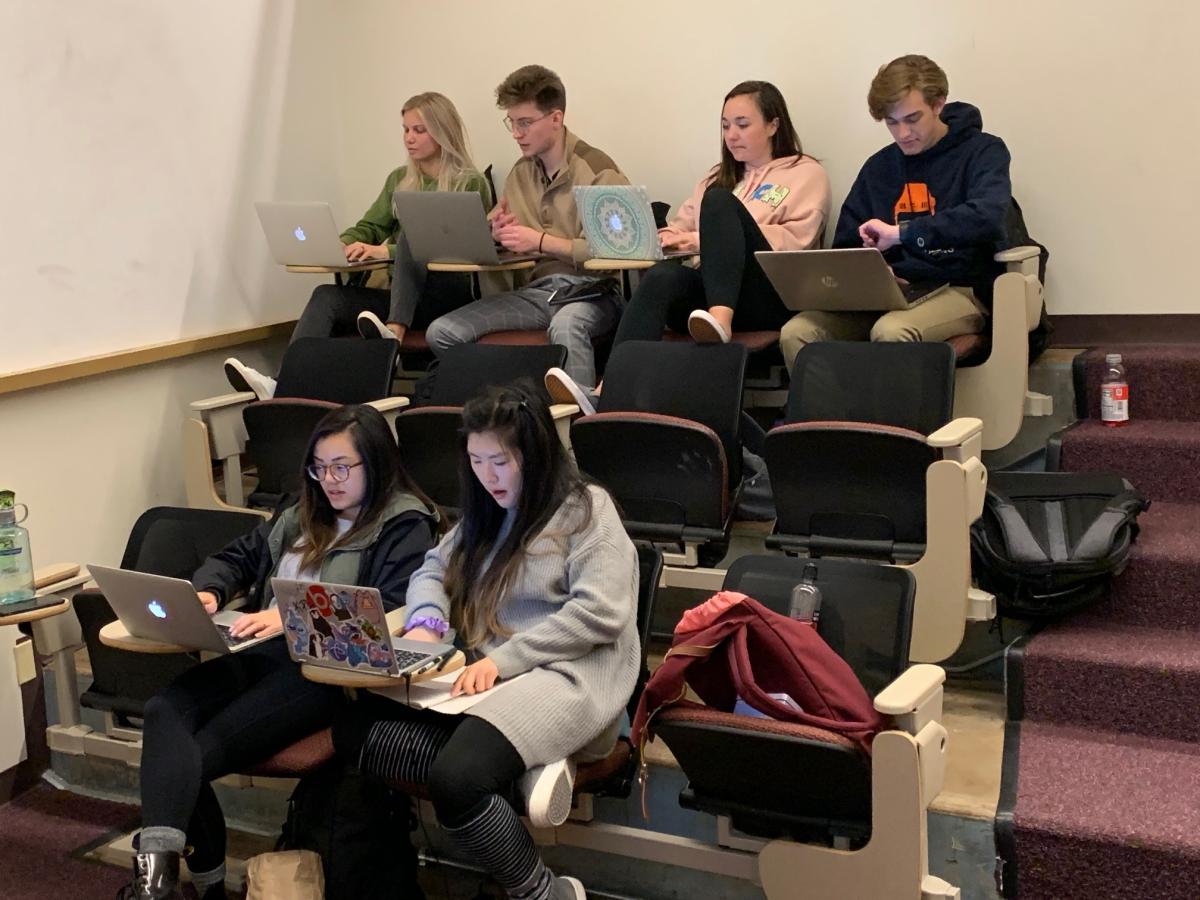DU Launches New Minor in Health

This year alone, some 600 undergraduate students interested in health care careers have met with Nancy Lorenzon, professor in the University of Denver’s College of Natural Sciences and Mathematics (NSM), for her pre-health advising services.
She has guided them with advice on everything from classes to volunteer work to medical school applications, but until now there was no cohesive academic offering for those students. That’s why Lorenzon spent more than a year and a half collaborating with health professionals around the state and students across campus to design DU’s new health minor.
“[Students] were learning the human biology, the chemistry — all the things that were required for medical school — but they weren’t understanding the larger umbrella,” Lorenzon says. “I realized the two main gaps students weren’t getting from normal programming and coursework were the health care delivery systems and health equity.”
According to Lorenzon, helping students understand this context of health care — issues of equitable access to care, health policy and the big picture of the health-care industry — will better prepare them for life after DU, and lead to better health outcomes for patients.
The new minor, which launched at the start of the 2020 winter quarter, requires 20 credits’ worth of classes, including two required core courses: Science of Human Health and Health Systems Science. In addition, all students pursuing the health minor take part in a two-credit seminar designed to provoke discussion on current issues, such as the effect of climate change on health. The remaining 10 credit hours are comprised of a variety of electives, including Medical Ethics, Medical Terminology and internships.
Ultimately, Lorenzon hopes to see the minor thrive as a robust offering that reflect DU students’ deep interest in health (DU’s 600 pre-health students represent more than 30 different majors, and the University is home to 15 health-related clubs.)
NSM dean Andrei Kutateladze shares that vision.
“The health minor is a great opportunity for our students to amalgamate their general interests in biomedical and other health-related areas with work on their specific major,” he says. “Health-related issues transcend so many academic disciplines, and there is no doubt in my mind that the new minor will be a popular option for DU students who are preparing for professional futures in the broadly defined interconnected areas of medical care.”
To aid Lorenzon in this new venture, the University recently added Jennifer Hellier, a teaching assistant professor, to its ranks. Hellier comes to DU from the Colorado Area Health Education Center, where she ran pre-health programming designed for students all the way from kindergarten to practicing professionals. Before coming to DU, she served as a collaborator to Lorenzon, helping to design the particulars of the new health minor.
In addition to teaching one of the program’s core classes, Hellier leads an elective course called Health Education and Promotion, which includes a service learning component. “We are partnering with Denver Public Schools, particularly Denver North High School,” she explains. “Our students are going to the high school and teaching health education to ninth graders there.”
The outreach is part of the aim that the classes create holistic health students, primed for post-DU careers, whether that be medical school, health policy or otherwise.
“We tell students all the time that the volunteering and work they are doing should be a part of who they truly are and what they believe in,” Hellier says. “That way it’ll show true commitment and that they understand that healthcare is a service — it’s not just about a job.”
It seems those lessons are already beginning to have an effect on students, including Cameron Carlson, a first-year student enrolled in one of Hellier’s classes. Carlson says he plans to sign up for the health minor to help clarify an intimidating medical landscape.
“Health care is so much more than just taking care of people. There is bureaucracy and a very strong system behind it,” he says. “Having a health minor will not only help me better understand what it is that I want to do, but also help me better prepare for that.”







